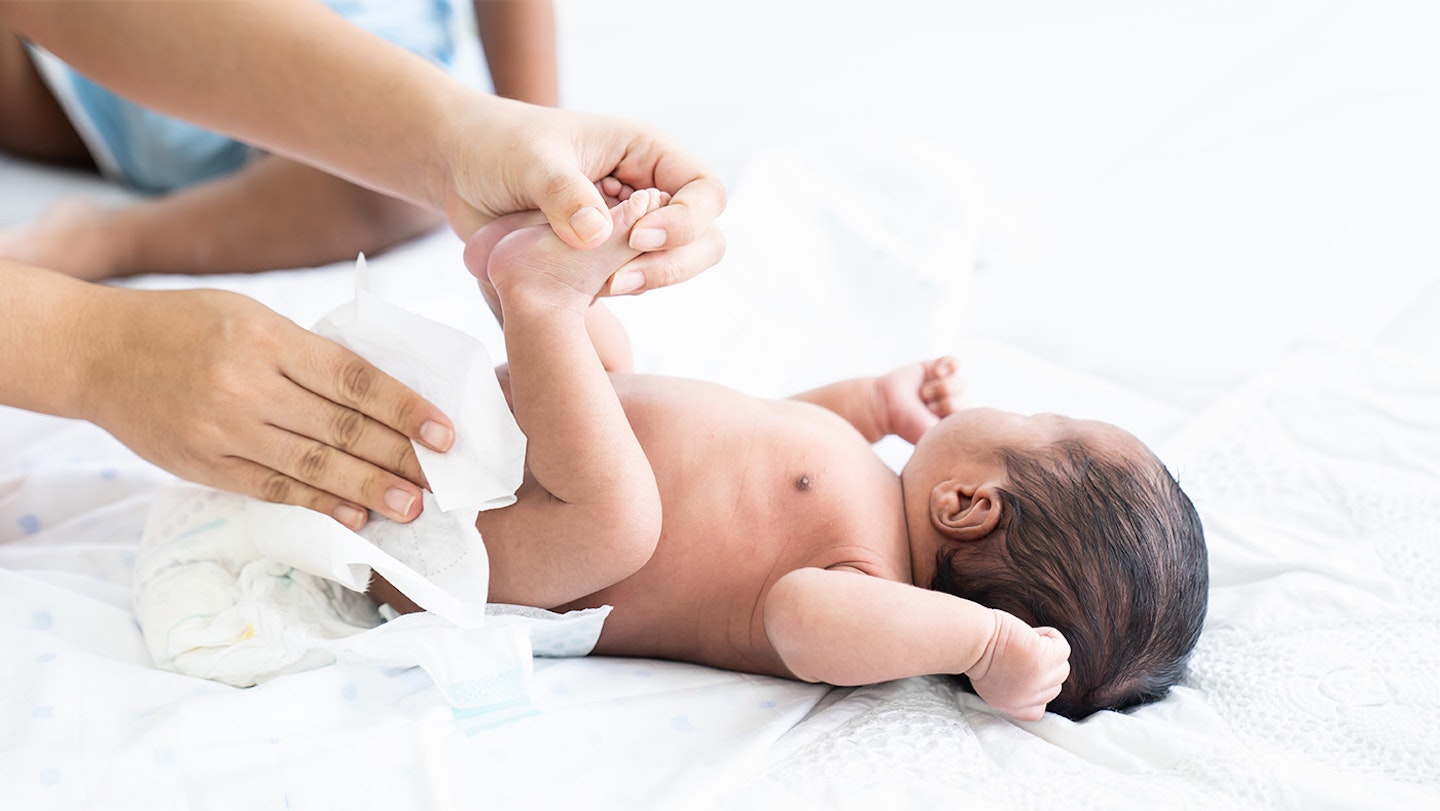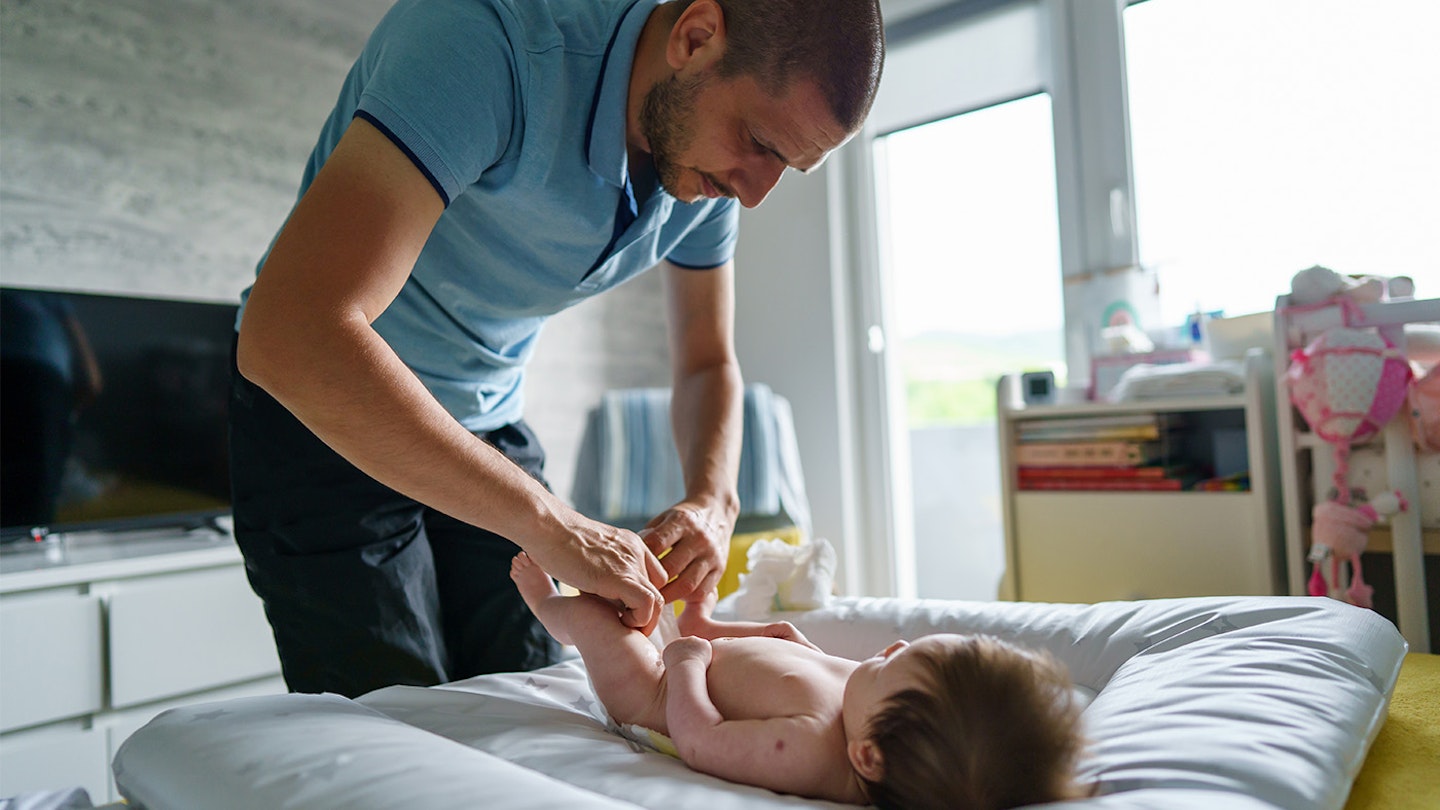When you're a parent, it's common to become a bit obsessed with baby poo. You'll find yourself asking questions such as, What does my baby's poop colour mean? or Why is my baby pooping so much? It also quickly becomes the norm to have poo-related conversations, especially with other parents.
If things are looking a little different to usual in your baby's nappy and you're concerned your little love might be experiencing newborn diarrhoea and tummy troubles, we're here to help.
What should baby poo look like?
“Newborn poo is usually very dark in colour and has a marmite-like consistency," explains Metanium’s resident midwife, Marley Hall. "It’s very sticky and can be difficult to clean. It will stay like this for a couple of days then it will start to change. You’ll notice it becomes lighter, and a green colour for almost around days 2-3, before changing to a mustard/yellow colour by the end of the first week."
Whether your baby is breastfed or formula-fed will also impact their poo colour as they grow. A breastfed baby's poo is typically yellow, soft, and runny while formula-fed baby poo is firmer and pale brown or yellow-green.
What are the symptoms of newborn diarrhoea?
Baby poo is generally very loose, particularly with breastfed babies. "It can be alarming as often nappies can be quite explosive when your little one is suffering from diarrhoea," explains Marley. "But a baby that has genuine diarrhoea will likely have bowel movements much more often than usual. This poo will be extremely watery and your baby may appear to be generally unwell, sometimes with a fever, if an infection causes the diarrhoea.”
What causes baby diarrhoea?
There are a few reasons why your baby might be experiencing diarrhoea. These include:
• Antibiotics
• A common cold
• Bacteria from feeding equipment such as bottles that haven’t been properly sterilised, or formula that has been made up using water that is not hot enough.
"Occasionally some babies can have a lactose intolerance to cow’s milk protein found in formula milks which can also be a cause of diarrhoea," Marley adds.

How to treat newborn diarrhoea
Unfortunately you can't make baby diarrhoea go away immediately, it tends to resolve by itself naturally and there are a few things you can do to help with the symptoms.
"When treating diarrhoea, ensure you’re providing your little one with regular fluids, continuing to offer feeds frequently to avoid dehydration. Diarrhoea should run its course and it will often clear up in 5-7 days," recommends Marley.
"Continue feeding your baby via breast or bottle as normal and ensure all bottles are sterilised properly if bottle feeding. When making up feeds, always use boiled water that has been left to cool for 20 minutes, to ensure that any bacteria in the powder has been killed and avoid upsetting your little one’s tummy even more.”
When should I seek medical advice?
“You should seek medical attention if your baby appears to be unwell, has persistent diarrhoea or has a temperature of 38 degrees C or above," Marley advises. "If diarrhoea has led to nappy rash – common, uncomplicated nappy rash is unlikely to cause a fever in your baby.
Keep an eye on nappy rash
"Any change in diet can cause runny stools, and no matter how often you change your baby’s nappy. During this time it can be difficult to keep your baby’s bottom clean, which may lead to the onset of nappy rash. A baby that is left in a soiled nappy for too long is likely to develop nappy rash, and so you should always aim to change dirty nappies as quickly as possible and be sure to bath your baby daily – but avoid bathing them more than twice a day as this may dry out their skin."
“At every nappy change, be sure to reach for a nappy rash cream such as Metanium’s Everyday Barrier Ointment. Applying a thin layer after each nappy change forms a protective layer on baby’s bottom, helping to shield the skin from the irritation-inducing nasties that can cause nappy rash. As well as protecting the skin, the gentle formula seals in the skin’s natural moisture keeping skin soft, smooth, and supple too.”
Marley concludes: “Always trust your instincts and if you have any concerns about your baby, seek advice from your midwife, health visitor or GP.”
Metanium’s Everyday Barrier Ointment is suitable for use from birth, unscented and suitable for vegans. Available from: Asda, Boots, Morrisons, Sainsbury’s, Superdrug, Tesco, Waitrose, Wilkinson, Lloyds Pharmacy and independent chemists. RRP 40g/80g £3.50 / £5.90
